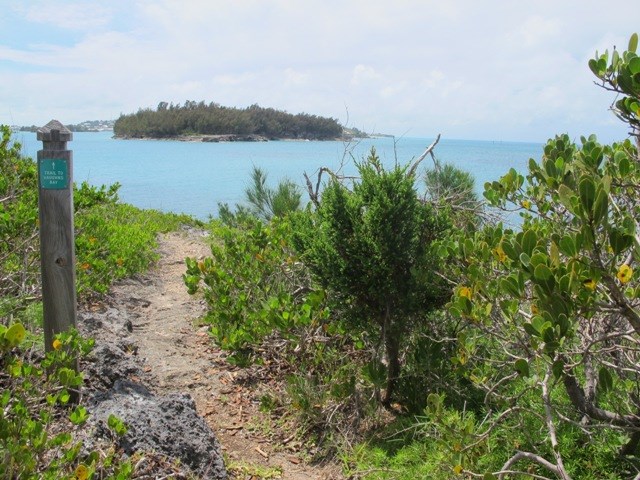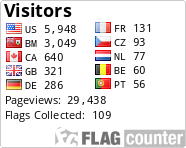Welcome to Little Head Park!

This relatively rarely visited national park is truly a hidden gem. Located on the northern coast of St. David's Island, Little Head Park offers stunning panoramic views of the open ocean, beautiful rocky coastline with several nature trails to explore as you make your way over to or from Fort Popple. There is not much left of this fort but the surrounding park is not to be missed.
A good example of a typical coastal forest and rocky coast habitat in Bermuda, you may want to wear long pants and decent walking shoes as you navigate through sometimes overgrown trails and along rocky coastline. Beware there is some Poison Ivy in the area but if you stick to the paths you should be fine.

Some plants you will see in the rocky shore habitat includes Buttonwood (Conocarpus erectus), Bay Grape (Coccoloba uvifera), Sea Oxeye (Borrichia arborescens), and Prickly Pear (Opuntia stricta). You will also notice several stunted Bermuda Cedars (Juniperus bermudiana). In fertile, sheltered conditions these tress can grow up the 50ft (16m), however the cedars on this hillside are only about 6ft. This unusual phenomenon is most likely a result of the trees adapting to this harsh coastal environment, staying short to avoid being damaged by high winds.
Animals you may see include the White-tailed Tropicbird or Longtails (Phaethon lepturus catesbyi), Keyhole Limpets and Yellow-Crowned Night Heron (Nyctanassa violacea).
Unfortunately, you will also see several invasive plant species, such as Brazil Pepper (Schinus terebinthifolius), Jumbie Bean (Leucaena leucocephala) and Casuarina (Casuarian equisetifolia).
The Brazil Pepper, locally often called Mexican Pepper, is perhaps the most devastating invasive plant species in Bermuda. It was introduced as a garden plant prior to the 1950's and has since successfully invaded all parts of the island. It has been so successful that it has displaced many native plants and drastically altered the habitats it has invaded.
World-wide , invasive species are one of the leading causes of biodiversity loss. Island environments like Bermuda's are especially vulnerable to invasive species because our native island species are used to the conditions here and do not adapt easily.
The World Conservation Union (IUCN) maintains a list of the top 100 worst invasive species in the world. Of those top 100, 23 are found in Bermuda. They include: Water Hyacinth, Brazil Pepper, Kudzu, Wedelia, Cane toad, Starling, Red-eared Slider, domestic cat, mouse, rats and several kinds of ants.
Public transport:
Bus # 6
Disclaimer
- This geocache has approval to be placed at this location on property managed by the Department of Parks.
- The following items may not be placed in the geocache: food, illegal substances, medications, personal hygiene products, pornographic materials, hazardous materials, or weapons of any type.
- By searching for the cache, visitors agree that they are responsible for their own actions, and acknowledge that neither the Bermuda Government nor the cache owner is responsible for any loss or injury that may occur in relation to such search.
- Report any incident, problem, or violation to the Department of Environment and Natural Resources.
